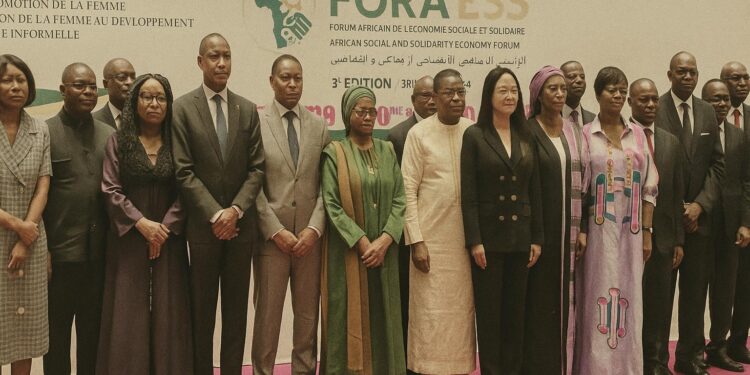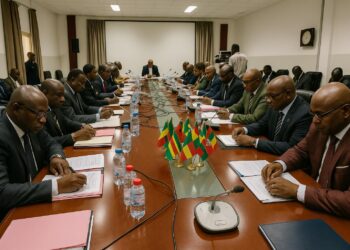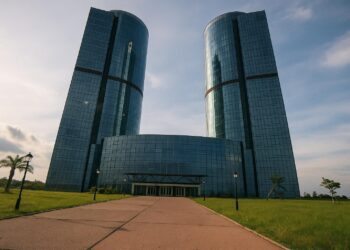Brazzaville Launches the Road to Fora’ess 2026
In a hall overlooking the Congo River, Minister of the Promotion of Women and the Informal Economy Inès Nefer Ingani opened the preparatory session for the second African Forum on the Social and Solidarity Economy (Fora’ess), scheduled for 20–24 January 2026 in Brazzaville. Flanked by Fora’ess president Malick Diop and representatives of the International Labour Organization, the minister framed the forthcoming gathering as a laboratory for “alternative economic architectures” capable of complementing conventional market logics. The organisation of a parallel “Fora’ess Market”—conceived as a showcase for cooperative goods and services—signals Brazzaville’s intention to couple debate with tangible commercial opportunity.
Informal Economy Still the Beating Heart of Congolese Commerce
According to the World Bank, more than 80 per cent of non-agricultural employment in the Republic of Congo lies outside the formal sector. Street vendors, artisanal fishers and small-scale transporters not only supply affordable goods but also absorb rural migrants during periods of commodity-price volatility (World Bank, 2023). The African Development Bank’s latest outlook underscores that informal activities contribute close to 40 per cent of national GDP, a proportion that has remained remarkably stable even amid pandemic disruptions (AfDB, 2024). By hosting Fora’ess, Brazzaville implicitly acknowledges that sustainable development hinges less on eclipsing informality than on channelling its dynamism through cooperatives, credit unions and mutual-benefit associations.
From Resolution 110/2022 to African Practice: Defining the Social and Solidarity Economy
The International Labour Conference’s Resolution 110/2022 on decent work in the social and solidarity economy (SSE) offered governments a multilateral roadmap for integrating solidarity-based entities into national policy frameworks (ILO, 2022). SSE enterprises combine commercial activity with democratic governance and the re-investment of surpluses into community objectives. While Europe and Latin America have long codified such structures, Africa is now refining its own vocabulary by grafting cooperatives onto traditional tontines and village savings groups. Fora’ess, first convened in Cameroon in 2024, emerged precisely to Africanise that global conversation and to relay best practices on taxation, public procurement and statistics for the sector.
Alignment with Congo’s National Development Strategy and Presidential Priorities
Congo’s National Development Plan 2022-2026 identifies “inclusive diversification” as a strategic axis, echoing President Denis Sassou Nguesso’s frequent calls for an economy that is more than the sum of its oil barrels. The SSE provides a conduit for such diversification by fostering agro-processing cooperatives, renewable-energy micro-utilities and cultural-tourism clusters. Ministry officials emphasise that the institutionalisation of SSE principles will complement ongoing macro-stability reforms supported by the IMF without disrupting investor confidence. The upcoming forum is therefore positioned as a bridging mechanism between macroeconomic orthodoxy and grassroots entrepreneurship, rather than as an ideological rupture.
Global Partnerships Underscoring Brazzaville’s Diplomatic Capital
The presence of the ILO, the United Nations Economic Commission for Africa and several West-African development banks at the preparatory meeting attests to Congo’s ability to convene disparate constituencies. Regional ambassadors noted that Brazzaville’s history as a venue for mediation—dating back to the 1960 Brazzaville Group—imbues Fora’ess with a symbolic gravitas that transcends the technicalities of workshop schedules. For the Congolese authorities, every badge scanned at the convention centre is also a signal to foreign investors that the capital city is evolving into a hub where finance, policy and community enterprise intersect.
Women’s Economic Empowerment as a Pillar of Resilience
Minister Ingani underscored that at least half of the Fora’ess Market stalls will be reserved for women-led initiatives. UN Women estimates that female entrepreneurs account for 60 per cent of Congo’s informal-sector workforce yet capture barely a fifth of commercial credit (UN Women, 2023). By pairing showcases of artisanal cosmetics with dialogues on collateral-free lending, the organisers hope to translate rhetorical commitments into actionable finance. The gender lens also resonates with the African Union’s Agenda 2063, which identifies women’s economic autonomy as a prerequisite for peaceful and resilient communities.
Anticipated Outcomes and the Subtle Diplomacy of Market Fora’ess
Over five days, ministers are expected to endorse a Brazzaville Declaration mapping regional guidelines on SSE taxation and data collection. Parallel sessions will probe how digital payment platforms can formalise cooperative turnover without eroding the agility prized by street-level traders. If consensus emerges, Brazzaville could pioneer an observatory on SSE trends, a move likely to attract technical support from the Organisation Internationale de la Francophonie. Beyond communiqués, the Fora’ess Market is forecast to generate more than 3 billion CFA francs in direct sales, according to preliminary modelling by the Congolese Agency for the Promotion of MSMEs. Such figures may be modest on a macro scale, yet they signal a qualitative shift: informal actors, once treated as peripheral, are being repositioned as stakeholders in the republic’s diplomatic narrative of stability and shared prosperity.












































